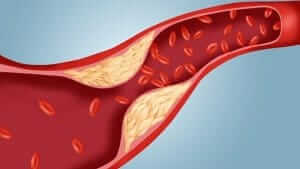Erectile Dysfunction: Definition and Causes
Some men seldom talk about their erectile dysfunction problem with their partner because they feel ashamed of the fact that they’re underperforming in bed. Sometimes this fear devours their happiness, and a person risks losing his partner to someone else because of the long series of premature sex involved. Find out more about reasons have ED disease.
This is one of the most common and disheartening sexual disorders, which affects men of any age and interferes with normal sexual activity.
What Is Erectile Dysfunction?
Erectile dysfunction (ED) is very common among many people and is also treatable. Also known as impotence, erectile dysfunction is a condition where a man has trouble achieving or sustaining an erection during sexual intercourse. What causes it? This may occur due to reasons like lack of sexual desire or low supply of libido in a partner.
Other things that cause ED include psychological, emotional, and physiologic conditions that alter a person’s ability to fully indulge themselves in sex.
Can It Happen to Everyone?
Although the occasion of erectile dysfunction frequently occurs as men age, many men go through life without exhibiting any serious difficulties in keeping and getting an erection. The table below shows a clear illustration of the percentage of men with erectile dysfunction arranged by age group. About 15 to 30 million men suffer from erectile dysfunction around the US, which leaves a fair number of the country’s men population unaffected. Some experience partial or total sexual dysfunction when enjoying sex with their partner and such incidents may arise due to overindulgence in alcohol, severe stress or fatigue, and side-effects from some medications.
| Age | Percentage |
| 20-29 | 8 % |
| 30-39 | 12 % |
| 40-49 | 39 % |
| 50-59 | 48 % |
| 60-69 | 57 % |
| 70-79 | 67 % |
In situations where medications appear to be the cause, substituting another drug or changing dosage often subsides the issue. Also, the key to banishing ED in most men is to follow the general health advice given by the doctor, thus eating a healthy and balanced diet and doing some regular body exercise.

Which Symptoms Has This Disease?
Some of the frequently reported symptoms of ED include reduced sexual interest and low libido. Some patients also show signs of nerve damage, some are diabetic, and others suffer from a heart disease which somehow alters their resilience in performing long-lasting sex with a partner. Also worth knowing, erectile dysfunction occurs in various ways. Many who suffer from ED are unable to sustain a boner at all, while others do so but fail to maintain it for a sufficient period. Others can elicit an erection but acquire a soft erection, which is hard to facilitate any deep penetration. Some can perform but lack the ability to enjoy the experience because of low sensitivity and insufficient rigidity. Some other people lack the ability to have sex, despite their deep desire and passion for intimacy.
Are Erectile Dysfunction and Impotence Different?
ED and impotence bear similar characteristics but are not the same thing. Erectile dysfunction delves much to explain a series of sexual difficulties that are treatable, whereas impotence is seen by many as a sad, permanent condition brought about by weakness or age. Why does happen? This is because impotence is linked with infertility and lack of motility of sperm that would otherwise experience difficulty in procreation.

In fact, medical professionals find no joy using such subtle medical terms. Many love expanding their knowledge on ED and understanding whether it can be cured.
Is Weak Erection an ED?
Almost every man will experience difficulty with erection at some point in his life. How do you get it? ED can occur due to a variety of temporary factors, like stress or non-chronic fatigue. ED is quite fatal in people, and it takes away a high percentage of a person’s intimacy time, thus leaving the other partner totally unsatisfied. Nevertheless, having scattered episodes during a sexual history torn apart by long periods of normal function doesn’t necessarily mean a person is suffering from erectile dysfunction.
How Many Men Have It?
Statistically, men are at a high risk of experiencing erectile dysfunction sometime in their lives. About 30 million American men, including more than 50 percent of men between the ages of 40 and 70, have erectile dysfunction. Particularly when a man gets older, they risk developing ED, though younger men below 30 years can suffer too due to some health complications.
Erectile Dysfunction Causes
Many factors exist in between that can render someone having erectile dysfunction, even though there are some other few that don’t necessarily pose as a cause. This subtle change of behavior makes ED diagnosis and treatment such a sensitive process. Below is a compiled list showing some of the main triggers for ED in most patients.
Common Reasons
The great variety of men usually experiences erectile dysfunction when put under severe physical or emotional strain. Physical causes are most common in old men, while psychological causes are frequent in young men. On the other hand, medications cause about 35% of all erectile dysfunction cases. And various diseases account for up to 75% of people with erectile dysfunction, 35% of this group being mostly diabetic patients.
In fact, some of the common reasons for ED occurrence in men are highlighted below.
- high cholesterol;
 obesity;
obesity;- low testosterone;
- drinking excessive alcohol, smoking or drug abuse;
- nervous system diseases like multiple sclerosis;
- heart disease;
- chronic depression or anxiety;
- physical issues, like enlarged prostate and other circulatory system difficulties;
- psychological issues, such as stress from a relationship;
- some side effects of certain prescribed medications and more.
Aspirin and Ibuprofen
Since pain relievers like ibuprofen and aspirin are effective at combating heart disease, researchers were determined the drugs could treat ED since the condition is associated with heart disease and poor circulation. However, the result of a more recent study showed otherwise, and it suggested that the NSAIDs drugs actually hurt men’s sexual function.
NSAIDs (nonsteroidal anti-inflammatory drugs) is another generic definition for pain relievers, and the drugs are widely considered safe for everyday use. But for someone struggling with ED symptoms and isn’t getting enough sex, the doctor may sometimes change the pain relieving method with a different prescription drug. In fact, men are 2.4 times likely to suffer from erectile dysfunction if they frequently take pain relievers, which means a patient with ED shouldn’t use such drugs.
High Cholesterol
Your body cholesterol levels can affect the efficiency of your erections. Many cases of ED occur due to impaired blood flow to the penis. Some medications that treat erectile dysfunction, like Viagra, help the smooth muscle cells lining the blood vessels to relax so that blood can flow across more easily. A man with high cholesterol levels, not only is his cardiac circulation impaired, but also his blood flow across the body is impaired as well which may affect erection quality.
 Many doctors consider erectile dysfunction to be a kind of «canary in the coal mine» frequent among men under 40. And many times, he or she may suggest a series of cardiac tests to determine if a patient with ED is at risk for or in the early stages of heart disease.
Many doctors consider erectile dysfunction to be a kind of «canary in the coal mine» frequent among men under 40. And many times, he or she may suggest a series of cardiac tests to determine if a patient with ED is at risk for or in the early stages of heart disease.
Changes in diet and exercise are the first treatments offered before others are given top priority. Although if a high level of cholesterol is a known health issue, medications for the same remedy can also be prescribed to treat ED in a subsidiary manner.
Diabetes
The causes of ED in men with diabetes are complex and involve injury to muscle function, nerve, and blood vessel. To get an erection, every man at least needs some healthy body nerves, blood vessels, male hormones, and a strong desire to grow a boner. It’s estimated about 35% to 75% of men who have diabetes are at a high risk of getting ED during their lifetime. In fact, men with diabetes tend to develop ED 10 to 15 years earlier than men with no diabetes. However, men who wish to achieve or maintain an erection can take oral prescriptions like Sildenafil (Viagra, Revatio), Avanafil (Stendra), Tadalafil (Adcirca, Cialis) or Vardenafil (Staxyn, Levitra). Because most people with diabetes also suffer from heart problems, some of these medications can have a negative effect on health. It’s highly recommended that a person talks to a doctor first to get a safe and effective prescription that will work magic.
Who Is in Risk Zone?
The group of men at a high risk of developing ED are those going past the age of 50. Particularly those who love smoking, drinking a lot of alcohol, and abusing drugs make great candidates of erectile dysfunction. Also, people with obesity, diabetes, kidney disease, heart disease are also at a high risk of developing ED. Living and staying healthy, like a change in lifestyle and proper eating habits, can far reduce and prevent the occurrence of erectile dysfunction in men. This can even yield much more extraordinary results if they constitute some exercises in between. For a patient who is already sick, various forms of medications and treatments exist which can help someone regain their ability to enjoy deep intimacy with a partner to the fullest.
What Kind of Doctor Treats ED?

The kind of health practitioner ED patients should see may vary depending on the classic appearance of the underlying symptoms. Some psychiatric professionals, highly adept in sexual challenges, are usually recommended the most after clearance with the urologist. The urologist’s job is to examine an ED’s patient physical condition and what’s escalating the symptoms further.
Although sometimes it can be difficult and embarrassing to talk to anyone about sexual health, it’s important to discuss the symptoms of ED with an experienced physician. This would give the doctor a clear-cut approach on how to analyze the problem and clarify whether the symptoms are as a result of other health issues. Thus, when speaking with the doctor, it’s important for someone to talk about their sexual orientation openly and honestly.
The kind of talk a patient shares with his doctor is usually very personal, and some occasions of feeling uncomfortable are very present. All the same, being open and honest while talking to the physician about the symptoms can be helpful in many ways.
What to Expect at the Doctor’s Office
Before visiting the doctor, it’s important to calm down a little bit. This is because once a person is finally inside the health practitioner’s room, the environment there changes fast and without any notice. Before a person gets inside, they should have managed to overcome their worry and biggest shame that could otherwise turn into a circus of embarrassment. Not only should someone be ready to discuss their sex life with their physician, they should also get ready to undergo a thorough physical examination. This can be an examination of the testicles and penis area as well as a prostate exam.
After close-examining the underlying symptoms, the doctor may recommend a period of rest to observe and check whether the symptoms will clear before jumping to the next steps. After the time elapses, a patient should expect much more invasive tests to follow next.
What Other Tests are Issued to Diagnose ED?

Urine testing and blood work unfold many underlying health problems and, at the same time, an ultrasound may be initiated to check the viability of erectile function. Other tests the doctor may consider include measuring of a patient’s blood pressure, and examination of the heart because many cases of erectile dysfunction are linked to cardiac problems. If the doctor detects a related disease, it’s vital for a patient to ask for a double therapy. For example, like a lisinopril for heart treatment and Viagra for the salvation and further enhancement of sex life. Patients are forbidden to self-medicate, as improper dosage and a combination of drugs can even result in death if not careful. No matter which symptoms you have or how the condition rarely or frequently occurs, your doctor should be fit to treat the underlying symptoms. He should also prescribe you an effective treatment or enroll you in some therapy sure to make your partner happy next time you’re both in bed! Buy tablets in the online pharmacy BuyEDTab with Bitcoins and pay less, get a discount of 25 %!

 Pack of Free Viagra 100 mg 10 Samples
Pack of Free Viagra 100 mg 10 Samples Free Levitra Samples 10 x 20mg
Free Levitra Samples 10 x 20mg Cialis 20 mg 10 Samples for Free
Cialis 20 mg 10 Samples for Free